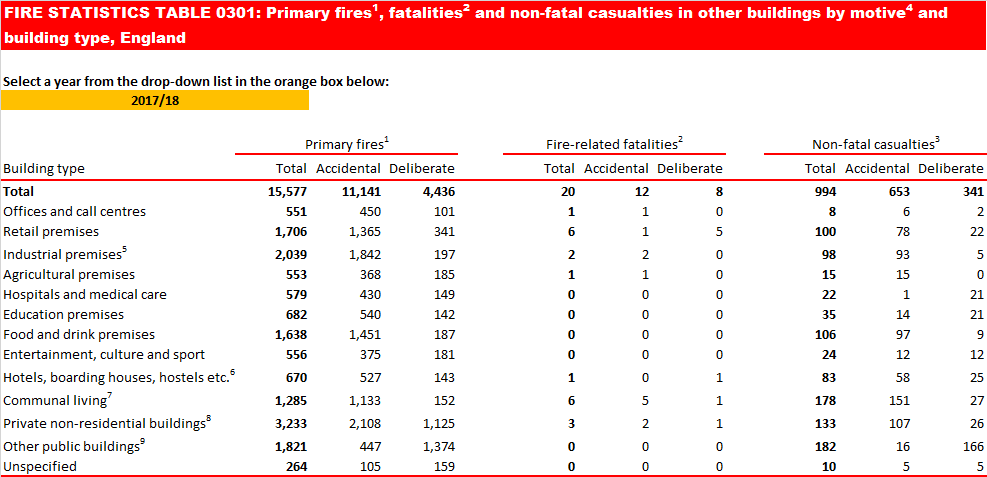
by Clair Mooney | Mar 21, 2019 | Main News Feed
FIS, representative body for the £10 billion finishes and interiors sector in the UK, has extended its hand to help the 75 staff being made redundant at Paragon Interiors.
Iain McIlwee, FIS CEO said “Paragon Interiors Group is a time served Gold award winning member of FIS and it’s tragic to learn the deal with Red 7 Property has collapsed. We care deeply about our membership base and recognise that staff are the most valuable asset of any organisation. We have worked with our colleagues at Paragon Interiors Group for a long time and for this reason we would like to help them secure employment in other organisations through our contacts and networks.”
FIS has reached out to their colleagues at Paragon Interiors Group, their MP, local employment groups and its membership base to see if they can find new employment opportunities for those impacted. Staff at Paragon Interiors Group can email FIS their details to info@thefis.org and we will endeavour to help them through discussions with our industry networks and on social media.

by Clair Mooney | Mar 14, 2019 | Main News Feed
The CPA Technical Report 19 (02) covered the government’s newly published Resource and Waste Strategy which aimed to make businesses and manufacturers pay the full cost for recycling and disposing of packaging waste by placing obligations on those responsible for producing waste to be more accountable.
Following this, DEFRA, in conjunction with the three devolved governments, has issued a Consultation on reforming the UK packaging producer responsibility system in which they are seeking views on introducing extended producer responsibility to reduce the amount of unnecessary and difficult to recycle packaging and to increase the amount of packaging that can be recycled. The consultation documentation can be viewed here.
The proposals being consulted on are:
- The definition of full net cost recovery and approaches to recovering full net costs from producers
- Incentives to encourage producers to design and use packaging that can be recycled
- The businesses that would be obliged under a packaging extended producer responsibility system
- Producer funding is used to pay local authorities for the collection and management of household packaging waste and to support the collection for recycling of household-like packaging ARISING IN THE COMMERCIAL WASTE
- Mandatory labelling on all packaging to indicate if it is recyclable or not
- New packaging waste recycling targets for 2025 and 2030 and interim targets for 2021 and 2022
- Alternative models for the organisation and governance of a packaging extended producer responsibility system.
The consultation is split into three parts and 12 sub-sections. Not all sections may be relevant to all stakeholder so not all questions are mandatory.
The proposals will impact:
- Manufacturers that use recycled materials
- Businesses that produce and sell packaging products
- Local authorities
- Waste management companies that collect and manage packaging waste
- Businesses that recycle or export for recycling packaging waste
The consultation closes on 13 May 2019

by Clair Mooney | Mar 13, 2019 | Main News Feed
Before Brexit day, most non-harmonised construction products circulate on the EU market under the mutual recognition principle. This principle prevents EU countries from prohibiting the sale of products that have already been legally sold in another EU country, even where countries have different national requirements covering the same products. The only exception to this principle is where an EU country has restrictions based on public safety, public policy or public morality.
You can read the government’s information on “Trading under the mutual recognition principle if there’s no Brexit deal”, here.
However in the event of the UK leaving the EU, the UK will no longer fall within the scope of the mutual recognition principle because we have become a ‘third country’. UK companies exporting non-harmonised products will need to consider the national requirements of the first EU country they export to. They will not need to consider the national requirements of any EU countries the products travel through before reaching their intended market.
UK companies which have already exported non-harmonised products to an EU country by meeting the relevant national requirements will still be able to make use of the mutual recognition principle and market their products in other EU countries.
UK companies importing non-harmonised products into the UK will need to ensure they meet UK national requirements, even if their products were previously lawfully marketed in another EU country. Non-UK companies exporting non-harmonised products to the UK will need to ensure that the products meet UK national requirements, regardless of whether they were previously lawfully marketed in another EU country or in the UK.
For further information about national regulations for non-harmonised products for different EU countries is available from the country’s Product Contact Point. A list of these national product contact points is available here.
With regards to cross-border trade between the Republic of Ireland and Northern Ireland, the Irish government has indicated that they would need to discuss arrangements with the European Commission and other EU countries in the event of a no deal Brexit. In this instance the UK government is ready to engage in these talks.

by Clair Mooney | Mar 13, 2019 | Main News Feed
Since the publication of the Hackitt Review in spring 2018, the construction industry has been working hard to meet the various challenges set for it.
The CPA has established its own Marketing Integrity Group (MIG) to specifically address Chapter 7 of the report, which challenges how product information is made available to the wider supply chain. In order to inform its work further, the group is issuing a Call For Evidence. FIS will be providing a direct response to the MIG. If members have any key points that they would like included, please email details to iainmcilwee@thefis.org
Areas of interest covered are:
- Ease of finding information
- Product substitution
- Completeness and correctness of information
- Products as part of a system, or use in a variety of applications
If members also wish to respond directly, the Call For Evidence survey is available online. It should take approximately 15 minutes to complete. The survey will close on Friday 5 April.

by Clair Mooney | Mar 12, 2019 | Main News Feed
The Department for Education (DfE) is launching a Call for Evidence on Building Bulletin 100: Design for Fire Safety in Schools, (BB100).
The aim of the consultation is to ensure the Department for Education’s guidance to those who build schools is fit for purpose and aligns with the Ministry of Housing Communities and Local Government’s (MHCLG) wider review of fire safety, we are launching a call for evidence on BB100 ahead of a consultation and thorough review. Fire in schools remains a concern in the UK with 682 instances recorded in educational premises in 2017/2018. Whilst there have been no fatalities in school fires since the 1940’s, the cost to the local community can be significant. Please send any information or views that you feel you would like to see included in the FIS response to joecilia@thefis.org by 24 May, so that we can include in our final submission by 31 May 2019.
https://www.gov.uk/government/consultations/review-of-building-bulletin-100-design-for-fire-safety-in-schools

by Clair Mooney | Mar 12, 2019 | Main News Feed
Osborne chief executive Andy Steele has said the industry “can’t afford” to tackle late payment under the current market climate.
In an interview with Construction News, Mr Steele said a “perfect storm” had formed for many contractors due to the current financial squeeze and pressure from government to improve payment practices. Mr Steele stated that the financial sector has had a “change in appetite” towards construction, pulling away from its exposure to the sector, making access to finance tougher for contractors.
Amid this financial squeeze, government has cracked down on late payment practices. All companies with turnover greater than £36m and 250 employees or more are required to submit their payment practice data to government.
But Mr Steele says that the industry “can’t afford” to improve its payment practices while banks are pulling away from financing construction companies. This is because in order to pay your supply chain earlier would require companies to take out loans to fund this, as historically, contractors have “held the cash to get their business models to work”, he said. This has created an “impossible situation” for a lot of the industry: “Those two dynamics do not work together,” he said.
Although the Osborne boss doesn’t doubt that companies want to pay their supply chain quicker – “and quite rightly, they should be paid quicker” he said – it is not possible to do so at present.
“You can’t just dictate down to companies that you have to suddenly comply with these changes in your payment practices, because the industry can’t afford it,” he said. “It can’t do it in one go.”
Mr Steele said the business model “can’t change overnight” and that there must be “a realistic understanding from government over the state of the construction industry today”.
He added both public and private sector clients need to start paying main contractors earlier.
“If best payment practice is 30 days, then money from the customer has to come earlier than 30 days,” the Osborne chief said. He added large tier ones with big borrowing requirements who have historic poor payment performance are under a “huge amount of pressure” and could face difficulties. He added it is in “nobody’s benefit” if these big companies “get into trouble”.
FIS CEO Iain McIlwee responded: “Whilst I don’t like the message, I am glad that Andy put his position out there. If we break down problems and draw issues out in the open, we can start to make genuine changes – we need more transparency in our supply chain. We have wrongly used payment as a blunt instrument to manage quality. Whilst we are now accepting that this cannot and does not work we find ourselves in a position that we are addicted to this extra line of credit and in an uncertain climate finding it difficult to raise alternative funding. I agree with Andy that it is “nobody’s benefit” if these big companies “get into trouble”, but is also unacceptable for them to limp along on the backs of hardworking subbies – it is also “nobody’s benefit” if these companies fail. He also makes a good point in that, if payment to the supply chain is to be enacted 30 days, then there needs to be some fat built into this to enable money to flow and be available to pay – i.e. clients need to pay earlier, this warrants more attention. I am also convinced more can and should be done to underwrite construction, it remains the third largest sector in the UK economy – we could do with more support from the biggest (the finance and banking sector) to manage change and support investment in innovation – this is surely in the national interest!”
Source: CN News






